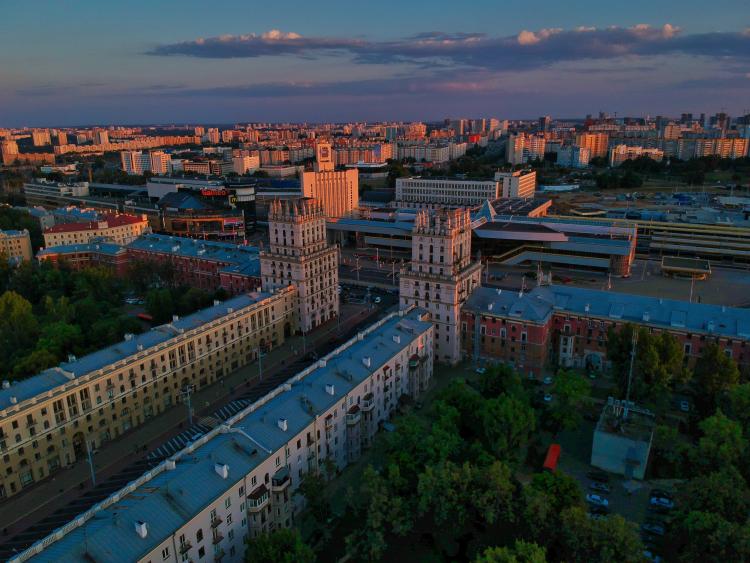
The Commissioner for Religious and Ethnic Affairs of Belarus organised an official public discussion of the draft law introducing amendments to the Law “On Freedom of Conscience and Religious Organisations” starting from June 5. The online consultation was organised at a very short notice, with only 10 days available to submit comments and proposals. Despite the short timeframe, the largest Belarusian religious denominations, including the Conference of Catholic Bishops and the Department for Relations with Secular Education of the Belarusian Orthodox Church, submitted extensive comments on the bill.
The draft law lays out the new version of the Law No. 2054-XII of December 17, 1992 “On Freedom of Conscience and Religious Organisations” and its practical application to bring it into line with the Constitution of Belarus.
Mandatory re-registration for another form of non-commercial organisations
The proposed new version of the law entails re-registration of all forms religious organisations existing in Belarus. These include the largest nationwide confessional associations (‘religious associations’), small religious cells and specific churches (‘religious communities’). The draft law stipulates that all religious organisations existing in Belarus will have to introduce amendments to their charters and submit the documents for re-registration to local or central authorities within one year after the new law comes into force. The authorities will have 6 months to examine the documents submitted for re-registration.
The previous re-registration of religious organisations took place 20 years ago, when in 2002 the current edition of the Law “On Freedom of Conscience and Religious Organisations” was adopted. Religious non-profit entities had twice as much time for re-registration then - two years from the entry into force of the law.
Thus, religious organisations become the next form of non-commercial organisations after political parties, which may face the announcement of a total re-registration (as for political parties, the deadline for filing documents for re-registration expired in early June). The re-registration of other common forms of CSOs (public associations, foundations, institutions) has not yet been announced, although many public associations will still have to amend their charters or register local branches due to the amendments to the Law on Public Associations introduced on February 14, 2023.
Religious associations
One of the significant changes in the legal regulation proposed by the draft law is the division of religious associations into:
- local religious associations (which can be established on the initiative of national associations or by at least ten religious communities) and
- national religious associations (registration of which will require having at least 15 registered religious communities or 7 local religious associations representing all Belarusian regions and Minsk).
According to the bill, a mandatory condition for establishing a religious association is that at least one religious community have been operating on the territory of Belarus for at least 30 years (according to the current version of the law, this requirement for denominations residency census is 20 years).
Previous requirements regarding the number of founders for establishment of a religious community remain unchanged. At least 20 citizens permanently residing in one or several settlements with adjacent territorial boundaries are required for registration of a community.
The draft law expands the list of cases when a religious organisation can be liquidated and the registering authority still has the possibility to suspend the activities of a religious organisation outside of court.
Unregistered religious organisations to be criminalised, contradicting international standards
The draft law still prohibits the activity of unregistered religious organisations on the territory of Belarus and provides for criminal liability for it with a punishment of up to two years of imprisonment under article 193-1 of the Criminal Code. This provision contradicts the Guidelines on the Legal Personality of Religious or Belief Communities developed by the OSCE and the Venice Commission. According to this, the use of a mandatory registration system infringes on the rights of believers. The European Court of Human Rights’ judgment in the case of Metropolitan Church of Bessarabia v. Moldova, 45701/99, para.128-130 also states that legal prohibitions and sanctions against unregistered types of activities in this area are incompatible with international standards. The existing requirements regarding the legal address for religious organisations, territorial restrictions, and the provision of the lists of founders also contradict the criteria of the process of obtaining legal personalities by religious communities, which should be non-burdensome, as set forth in paragraph 35 of the Guidelines.
However, the justification for the draft law states that the subject matter of regulation does not affect international treaties of the Republic of Belarus and other international legal acts, including the Universal Declaration of Human Rights and the International Covenant on Civil and Political Rights. It is also groundlessly stated that there are no scientific research results in the field of law or publications in the media related to the subject matter of the law's regulation.
According to the plan of legislative activity, after 10 days public discussion of the draft law, it should be updated and submitted to the Parliament in September 2023.
